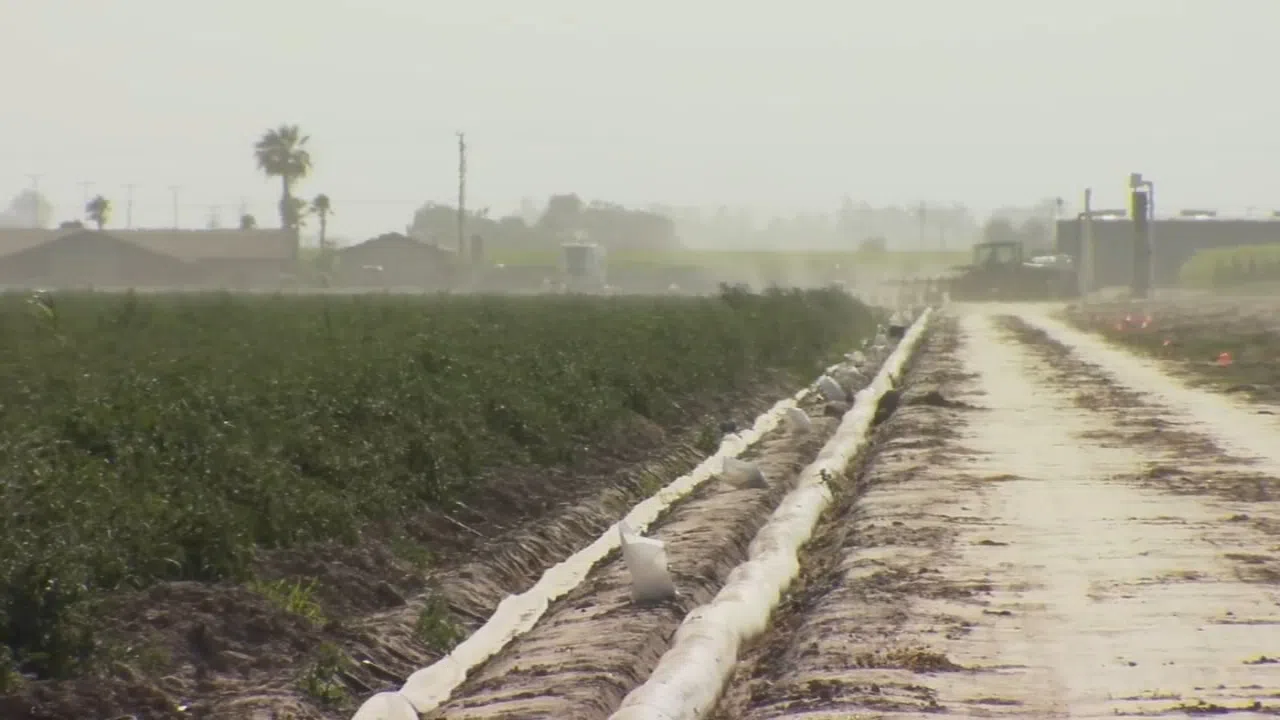HANFORD, Calif. (AP) — A judge has temporarily blocked a plan by a California state water board to take over monitoring groundwater use in a portion of the crop-rich San Joaquin Valley, according to a copy of the decision obtained Tuesday.
Kings County Superior Court Judge Kathy Ciuffini issued a temporary restraining order halting the State Water Resources Control Board’s plan for the Tulare Lake Subbasin until an Aug. 20 hearing. The ruling came after the farm bureau in the largely agricultural county of about 150,000 people filed a lawsuit saying the plan exceeded the board’s authority.
“This is a huge first step,” said Dusty Ference, executive director of the Kings County Farm Bureau, adding the results of the lawsuit could affect farm communities throughout the state. “Everybody should be paying attention to this.”
At the heart of the fight is a law California enacted a decade ago to regulate the use of groundwater after years of overpumping and drought led to problems with water quality and land sinking. Under the landmark law, local communities must form groundwater agencies and draft plans to sustainably manage their groundwater, and those that don’t run the risk of state monitoring or intervention.
That occurred earlier this year in the case of the Tulare Lake Subbasin, which covers a stretch of Kings County. The State Water Resources Control Board placed the subbasin on so-called probationary status after state officials deemed that local communities had failed to come up with a sustainable plan – a move that put state officials, instead of local ones, in charge of tracking how much water is pumped from the ground.
Many farmers feared the prospect of pumping caps and fees could hurt business in Kings County, which is about halfway between Los Angeles and San Francisco and a major producer of milk, pistachios and processed tomatoes.
The State Water Resources Control Board said in a statement that it disagrees with the temporary order, which suspends the requirement that groundwater pumpers report their water use in the critically overdrafted subbasin.
“This requirement is an important part of the probationary process under the 2014 Sustainable Groundwater Management Act (SGMA), which protects groundwater resources for the benefit of all Californians,” the statement said.
Groundwater accounts for nearly 40% of California’s water supply in an average year and even more in dry years, according to the state water board.





